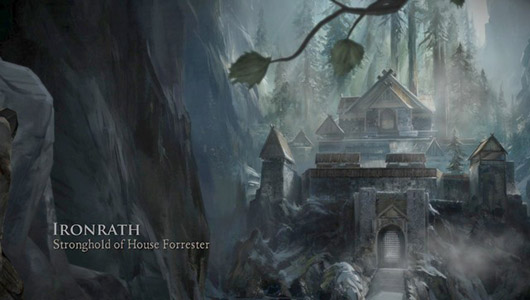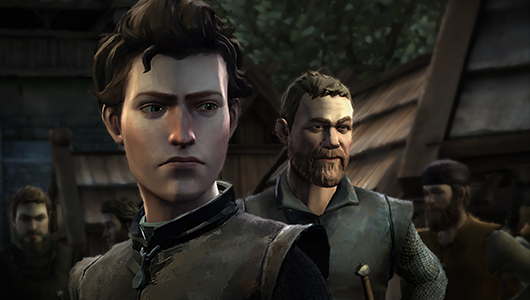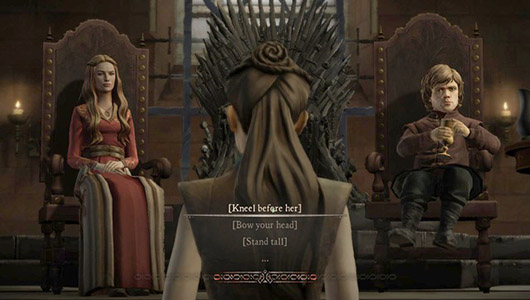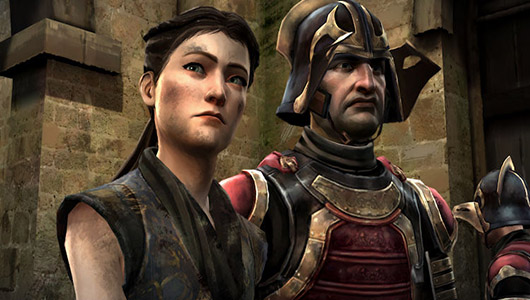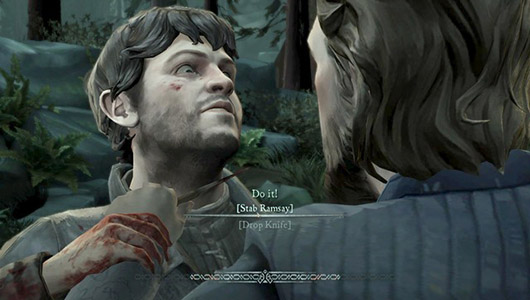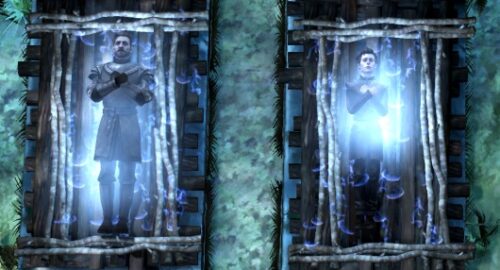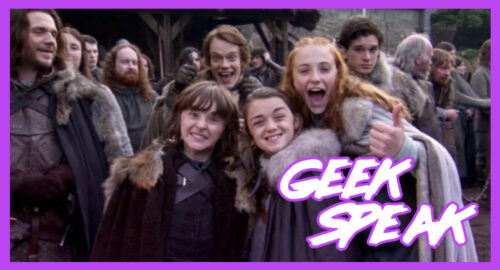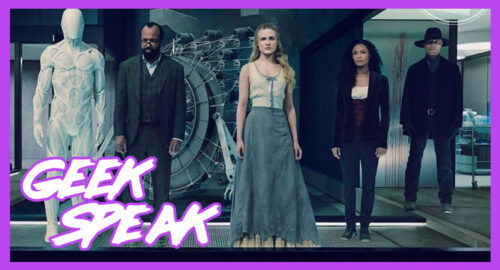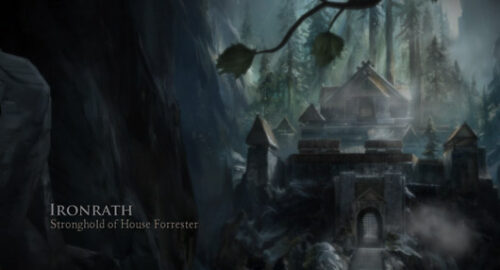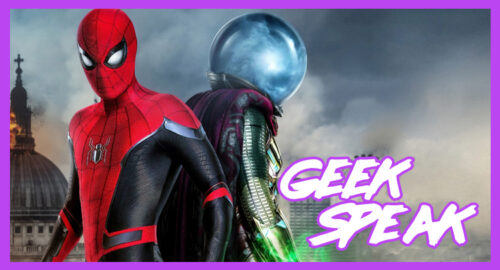SPOILER WARNING: This article contains some spoilers from the game, the show and the books so discretion is advised.
Series 5 of Game of Thrones picked up a record number of Emmys this year, taking home a total of 12 awards and beating the likes of Better Call Saul, Orange is the New Black, Homeland and House of Cards to be crowned best drama among other things. But all I could think was, were we watching the same show? Could it honestly be claimed with a straight face that this was the best Game of Thrones has ever been? It felt more like bowing to the show’s building reputation rather than objectively judging and assessing its value, no one could justify that this series was most deserving of such treatment.
Bar a few good episodes, it was ham-fisted, uneven, tone-deaf and lacking in so much of the finesse and emotional heft that made the first few seasons compelling. The long-awaited introduction and handling of Dorne was cringe-worthy and laden with stereotypes and most of the interesting characters spent a long time doing nothing. Writers David Benioff and D. B. Weiss’s capacity for stripping female characters of their complexity and agency while being able to make room for plenty of reverse engineered shock-value violence and character assassinations was in full force. It’s all the more offensive that the blatant misogyny and obsession with violence against women that’s shoehorned in at every opportunity is labeled ‘historical accuracy’ (in which case let’s get rid of the dragons and ramp up the dysentery, rotting teeth and hairy legs). And being an insufferable ‘the books are better’ type, with every admission of a fantastic story arc or an incomprehensible plot restructure, I felt my interest waning further.
The remedy to my disillusionment came in the form of Telltale’s adaptation. With a newly announced sequel season, I’m now far more excited about that prospect than the next series of the show that, as for many, began my involvement with the franchise. Picking up mid-season 3 and depicting the events surrounding little-known House Forrester, the similarities between them and the Starks are clear; both likable and proud northern houses that seem to be on the receiving end of an awful lot of undeserved bad luck and treachery. The Forresters find themselves in a vulnerable position post Red-Wedding, having lost most of their army and the support of the Starks, who they were sworn to. They provide an excellent substitute for the real thing, and by the shocking resolution of the first episode (which I replayed several times to see if there was any way to avoid) I was hooked.
To be fair, I love Telltale games. Sure the animations are stiff and glitchy, there’s lots of out of character moments and the vast majority of your ‘weighty’ decisions make absolutely no measurable difference to the plot but I still love them. I’d play a Telltale adaptation of The Jeremy Kyle Show if such a thing existed. With the show’s many issues and steady decline with each departure from the source material, the perfect remedy is a story within the same parameters but with none of the pressures of an existing story to repackage. So this northern house and their endlessly snowballing woes provided the perfect surrogate. There was the same emotional weight and attachment that resulted in grief during the show’s earlier seasons. This is potentially made all the worse by the game always pointing a finger and accusing your decision making as being the root of all the chaos.
I can’t help but always be the boring lawful-good character in any decision-based game, and Telltale’s productions have always been a challenge, but the Game of Thrones morality added another level of complexity. Even if the majority of choices were incidental, the second guessing and what-if mentality felt like a very authentically Westerosi experience; no decision is the right one, and no good deed goes unpunished. While the most dramatic twists and deaths remained centred around the Forresters’ seat of Ironwrath, I found the POV of Mira, eldest daughter and handmaiden to Margaery in King’s Landing particularly gripping. It was suitably impossible to keep everyone happy and maintain allegiances amongst the politics of gossip and backstabbing and my attempts to remain an upstanding, and compassionate character led to one of the most devastating and seemingly inevitable conclusions. It had started slowly, and I’d assumed was going to be one of the more superficial aspects of the plot, and more an excuse to get an encounter with some familiar characters, but I was proven wrong with grim certainty. It felt like one of the most authentic experiences of the world George R.R. Martin has created as every attempt to manoeuvre out of trouble simply tightened another noose.
To me, that’s where the show has gone wrong. The whole melancholy of ‘doing the right thing will only get you killed in a world obsessed with power’ message seems to have been lost in swathes of fan-service reductive grimdark nonsense within the last few series. There’s shock value, but no attention to detail, seemingly to make room for more Tyrion scenes or one of Daenerys’s repetitive ‘not a queen but a whatever’ moments. Yes, Oberyn’s fight with Gregor Clegane; the culmination of a dark and intense arc that epitomised Dorne’s mistrust of the current royal family and Westeros in general, resulting in a shocking death only lasted four minutes, but at least we got an allegorical monologue from Tyrion about beetles representing the abuse of power. Or something.
On the other hand, Telltale’s interpretation and dilemmas provided a far more succinct and less pretentious demonstration of the challenges and burden of maintaining your principles and morality in an inherently flawed world, where often those who do not deserve it will pay the price. Should I let my friend take revenge on her old slave-master at the expense of a reward for the operation, which could in turn provide my family with protection against the army bearing down on them? Kiss the ring of a rival lord so that my hostage brother can attend a family funeral or remain defiant to keep the respect of my people and a tentative fiancé? Telltale has never shied from dark moral choices and brutal consequences, so Game of Thrones was a franchise in which these could excel. To put it plainly, one series of the game garnered a much more intense response from me than the last few series of the show have altogether. No doubt millions will be tuning into the premiere of season 6, but until The Winds of Winter hits bookshelves (hopefully within the next ten years or so), I’ll stick with Telltale for all my Westerosi needs.
